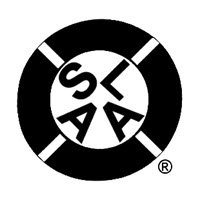To counter the destructive consequences of sex and love addiction, they draw on five major resources:
1. Sobriety. Their willingness to stop acting out in their own personal bottom-line addictive behavior on a daily basis.
2. Sponsorship / Meetings. Their capacity to reach out for the supportive fellowship within S.L.A.A.
3. Steps. Their practice of the Twelve Step program of recovery to achieve sexual and emotional sobriety.
4. Service. Their giving back to the S.L.A.A. community what we continue to freely receive.
5. Spirituality. Their developing a relationship with a Power greater than ourselves which can guide and sustain us in recovery.
As a fellowship S.L.A.A. has no opinion on outside issues and seeks no controversy. S.L.A.A. is not affiliated with any other organizations, movements or causes, either religious or secular. They are, however, united in a common focus: dealing with our addictive sexual and emotional behavior. They find a common denominator in their obsessive/compulsive patterns, which transcends any personal differences of sexual orientation or gender identity.
Their website includes the following features.
- Explanations of the group – its background, principles and methods
- Meeting Finder (In Person, Telephone and Online)
- Free Pamphlets
- Organization Information
- Online Store
SLAA was founded in Boston, Massachusetts in 1976, by a member of Alcoholics Anonymous (AA). Though he had been a member of AA for many years, he repeatedly acted out and was serially unfaithful to his wife. He founded SLAA as an attempt to stop his compulsive sexual and “romantic” behavior. SLAA is also sometimes known as the Augustine Fellowship, because early members saw many of their shared symptoms described by St. Augustine of Hippo in his work Confessions.
SLAA encourages members to identify their own “bottom-line behaviors.” The organization identifies these behaviors as “any sexual or emotional act, no matter what its initial impulse may be, which leads to loss of control over rate, frequency, or duration of its occurrence or recurrence, resulting in spiritual, mental, physical, emotional, and moral destruction of oneself and others.” Maintaining “sobriety” in the SLAA program requires abstaining from one’s bottom-line behaviors. However, these behaviors are never set in stone and may change as SLAA members continue in the program. Examples of bottom-line behaviors might include sexual or romantic activity outside the scope of monogamous relationships, anonymous or casual sex, compulsive avoidance of intimacy or emotional attachment, one-night stands, compulsive masturbation, obsessive fantasy, compulsive attraction to unavailable or abusive partners, and a wide variety of addictive sexual, romantic, or avoidant behaviors.
Many of those practicing the SLAA recovery program develop the ability to engage in a healthy committed relationship. SLAA encourages recovery from sexual anorexia, emotional anorexia and social anorexia, three related areas of self-deprivation that lead to isolation and often accompany patterns of addictive behavior.

